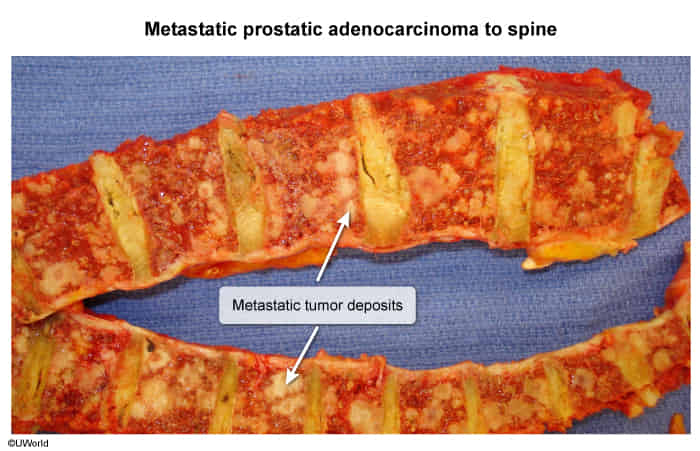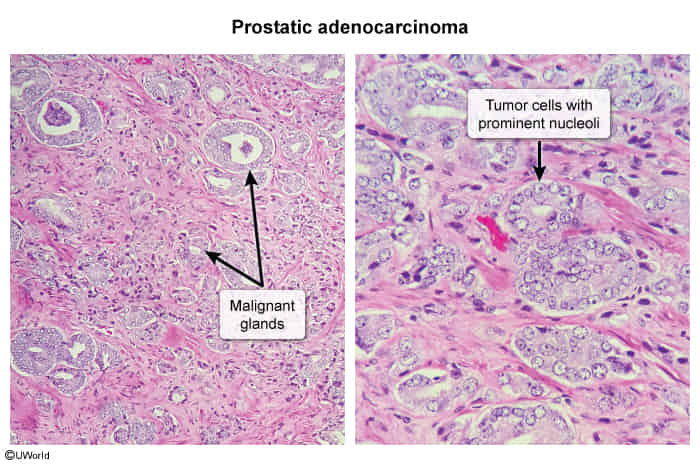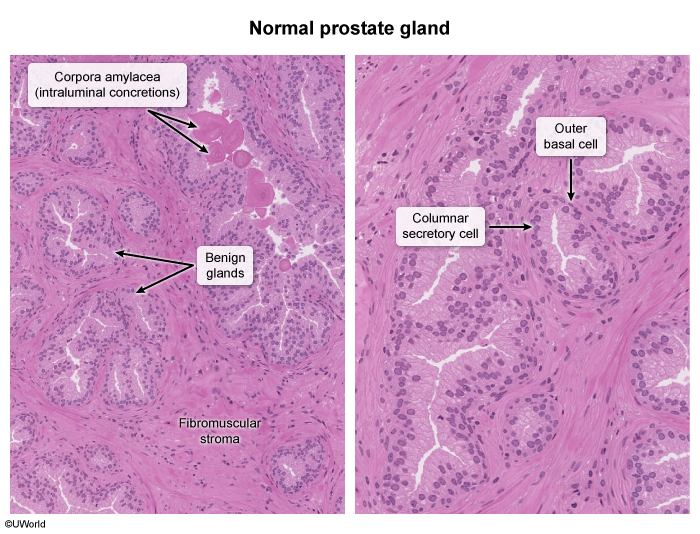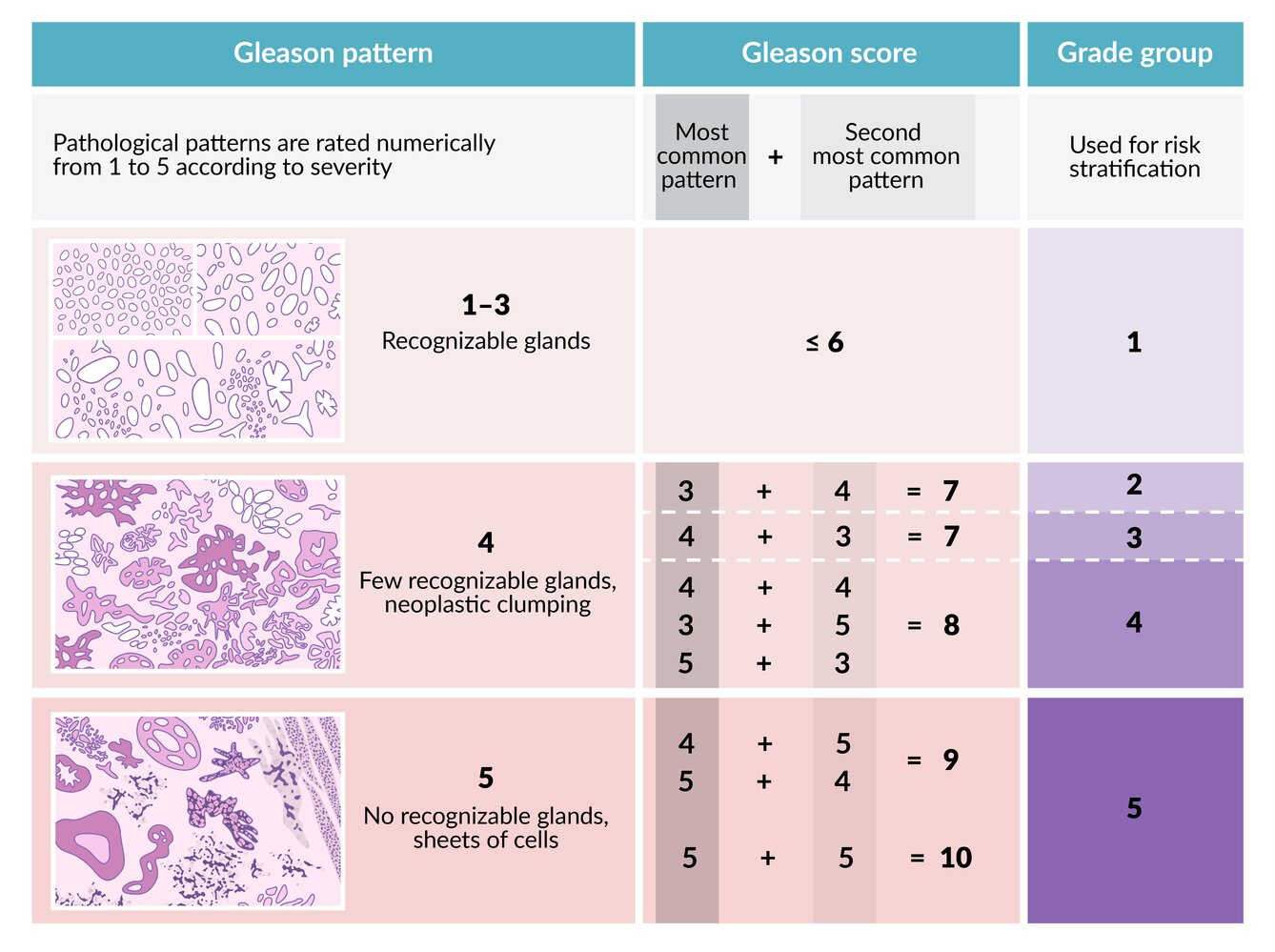Epidemiology
- Incidence: following skin cancer (i.e., melanoma and nonmelanoma combined) most common cancer in men in the US
- Mortality: in 2020, second leading cause of cancer deaths in men in the US (after lung cancer)
Etiology
Pathophysiology
Clinical features
- Advanced prostate cancer can manifest with:
- Constitutional symptoms: fatigue, loss of appetite, clinically significant unintentional weight loss
- Features of metastatic disease; examples include:
- Bone pain (due to bone metastasis, especially in the lumbosacral spine)

- Neurological deficits (e.g., due to vertebral fracture causing spinal cord compression)
- Lymphedema (caused by obstructing metastases in the lymph nodes)
- Bone pain (due to bone metastasis, especially in the lumbosacral spine)
Diagnostics
Biopsy
- Findings: adenocarcinoma


- Gleason grade (Gleason pattern): depending on the degree of differentiation of tumor cells and stromal invasion, tumors are graded from 1 (well-differentiated) to 5 (poorly differentiated)

- Gleason grade (Gleason pattern): depending on the degree of differentiation of tumor cells and stromal invasion, tumors are graded from 1 (well-differentiated) to 5 (poorly differentiated)
Treatment
Androgen deprivation
Androgens accelerate the growth of prostate cancer. Androgen deprivation by reduction of testosterone production or inhibition of testosterone binding to the androgen receptor on cancer cells is an important aspect of treating advanced or high-risk prostate cancer.
Androgen deprivation therapy (ADT)
- Definition: therapy designed to decrease testosterone production by the testes
- Indications
- Locally advanced and metastatic prostate cancer: primary treatment modality
- Options
- Medical castration: decreases pituitary stimulation of androgen production by the testes
- GnRH agonists (e.g., leuprolide)
- GnRH agonists may induce a short-term elevation in testosterone that transiently worsens symptoms (testosterone flare). This can be treated with a short course (< 4 weeks) of first-generation antiandrogens.
- GnRH agonists (e.g., leuprolide)
- Surgical castration: bilateral orchiectomy
- Medical castration: decreases pituitary stimulation of androgen production by the testes
- Adverse effects
- Increased risk of osteoporosis and fractures
- Sexual dysfunction: loss of libido, erectile dysfunction
- Change in body image: gynecomastia
Androgen synthesis inhibitors and androgen receptor antagonists
- Indication: adjunct to ADT in locally advanced and metastatic prostate cancer
- Androgen receptor antagonists (antiandrogen therapy)
- Mechanism of action: displaces androgens from androgen receptors
- Commonly used agents: apalutamide and enzalutamide (second-generation antiandrogens)
Tip
First-generation antiandrogens (flutamide and bicalutamide) are used only for the short-term management of a testosterone flare.